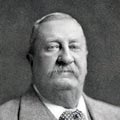The Peak of Sorata and Tiquiripaga, Part 3
We got to Tiquiripaga at 3.30 p.m. My Aymaras took us to the house, or rather the hut, of the head man, who kindly gave me a hut and the use of a shed for cooking, for 1/- a day. This man was about 60, tall and active, and was always very civil to me. He had two wives much younger than himself, one of them not at all bad looking; they were both very good to me, and could not have treated me better all the time that I was there with them. The day after I arrived, the old man told me I had better return to Sorata with the mules, as it was a long way and the roads were very rough, and down in the forest it was so hot that none of his tribe was ever able to live there. In fact, he said that when they went down to exchange challonas and salt and flour for cocoa, coca and tobacco, it was always arranged between the parties that at certain times of the year the forest Indians would march up to a meeting place in a clearing in the forest near the River Tipuani, some two days’ march from Gritada, the first hut on the river bank, and there do the exchanging, the mountain men returning to their homes on the Ylliapo Range, and the forest Indians down again to the Tipuani, Beni and other tributaries of the Amazon.
The old man also stated that the path from now on was in places so narrow that nothing larger than a very small mule or llama could travel, and then only in single file. So that I should have to continue on foot for the rest of the journey down, besides which the Indians of Challana would allow nobody to enter their country unless the Cacique ordered them to do so, and nobody had ever been able to enter without his permission. When I told him that Villarde’s sister, Mrs. Villavicencia, had sent in a messenger a fortnight ago, he at once said he could hire me some llamas, and he would go with us himself as far as this side of the Toro River; on the other side, we should find a few families of Indians living in the forest, and a coffee estate owned by a man I met at Sorata, also a man who owned two small mules, which I would very likely be able to hire with Indian carriers to continue the journey as far as the Tipuani River. The proprietor of this coffee estate, a man called Solis, had already given me a letter to his manager, a half-bred Indian. The old Indian arranged to go with me, with one of his wives, and two of his sons, and got me 15 llamas for 7 bols a llama, about 14/- a head, each animal to carry 35lbs., and we arranged never to start before 9 a.m. each day, and to camp every afternoon between 3 and 4 p.m., resting the animals for half an hour at midday. He said the reason he could not allow his llamas to go further down was that it would be too hot for the beasts, and, besides, it was the rainy season in the forest and they would not be able to cross the Toro River; I myself would have to be pulled over on a maroma or wire cable, which is placed there by the Government for the benefit of passengers to and from the Tipuani. He told me if that arrangement would suit me he could start in ten days’ time, not sooner, as his animals had only just returned from La Paz, where they had been with cargo; meanwhile I could have this stone hut for myself, and another smaller one for my man Miguel, and a kitchen for 1/- a day; he would let me have as many fowls as I wanted for 1/- each, guinea-pigs at 1/-, eggs at 1/- a dozen, and sheep at 4/-, the skin to be returned to him; I also used to give him the inside excepting the kidneys: eschalots for 3d. a bunch of twenty, and all the potatoes I wanted at 6d. a measure, which is equal to a big basketful.
I accepted this offer and the next day despatched the hired mules and my saddle mule back to Sorata, after they had eaten a good fill of barley. At 8 a.m. I paid the muleteers their due and gave them a small gratuity each, and some coca leaves to chew on the way. They were profuse with their thanks and gratitude, and said any time I wanted to employ them again they were always ready to come.
The old man called one of his wives, the youngest one, and told her she was to get all I wanted every day, which she always did. He took me to another shed which was full of long dried grass, and said I could use as much of it as I liked to make my bed soft to lie on; so Miguel and I got a whole lot and piled it up three feet high at one end of my hut, and fenced it round with big stones, placing some sheepskins on top, and then my old military valise; this with sheets and blankets made a very comfortable bed. I told Miguel he was to stay in camp all the time to look after everything, and he was to be careful to have lots of hot ashes always ready to keep the fire-hole full in my hut. By keeping this up and leaving the door open all day, it was quite comfortable at night. The first night, before the fire warmed it up, it was 8 degrees below zero.
